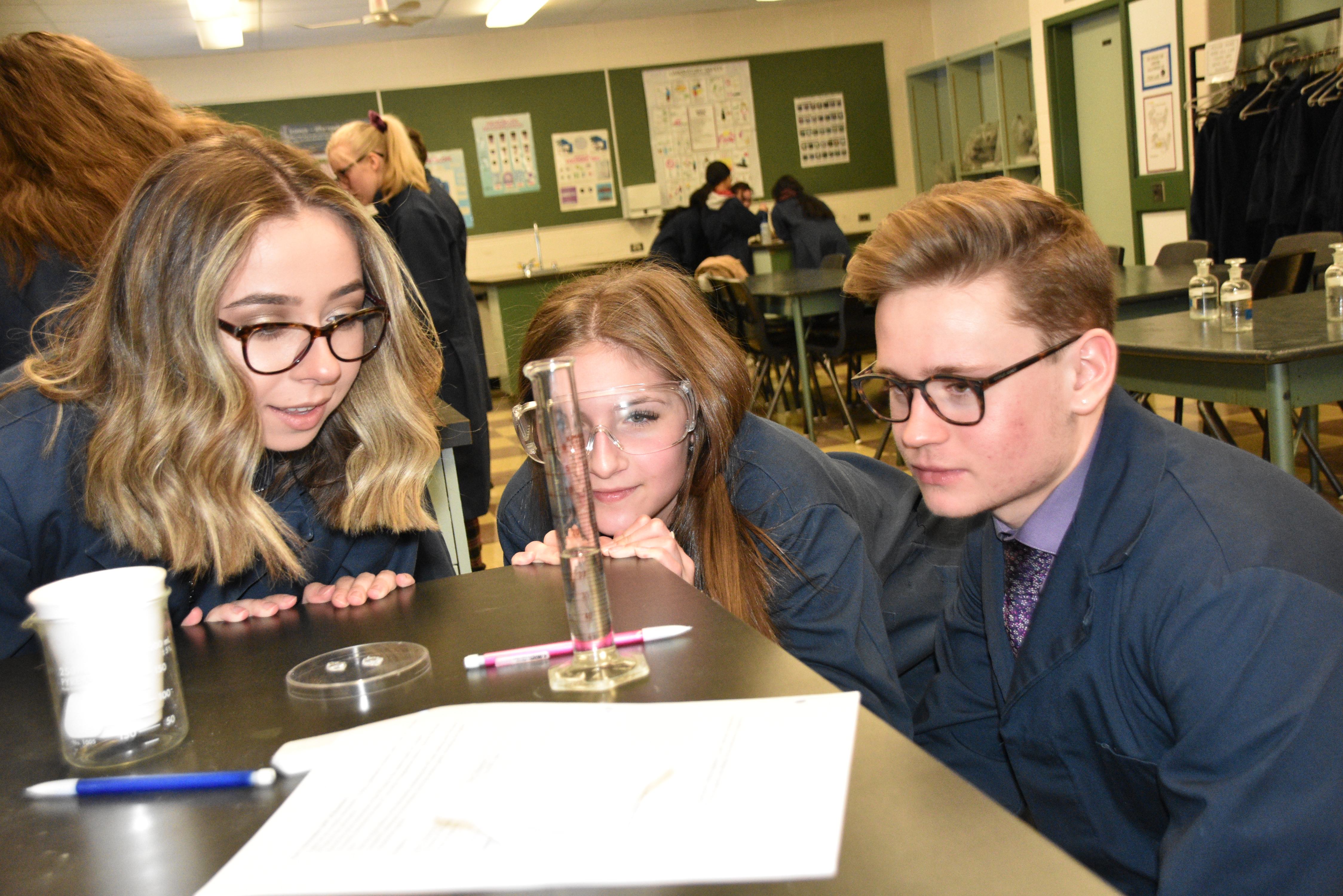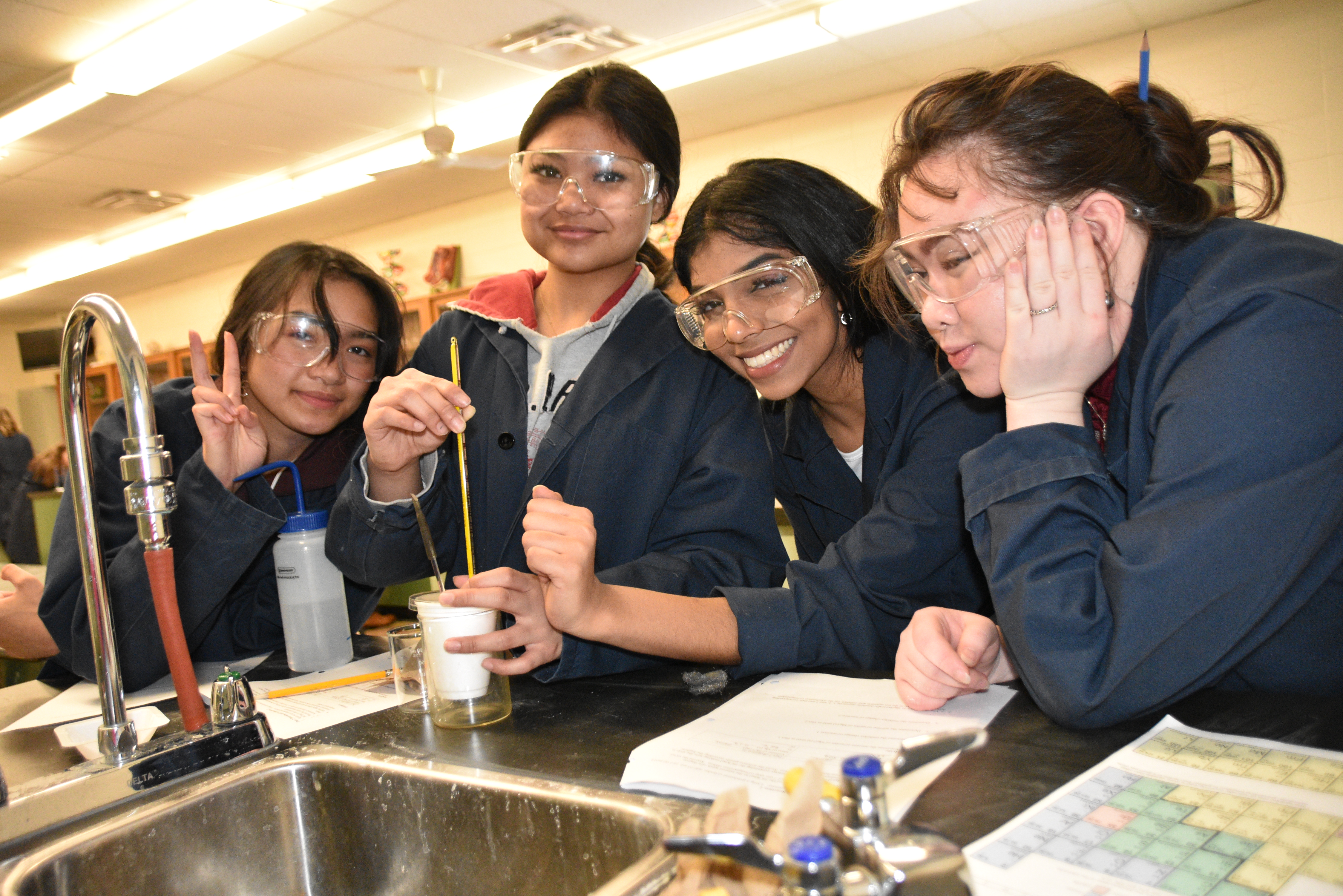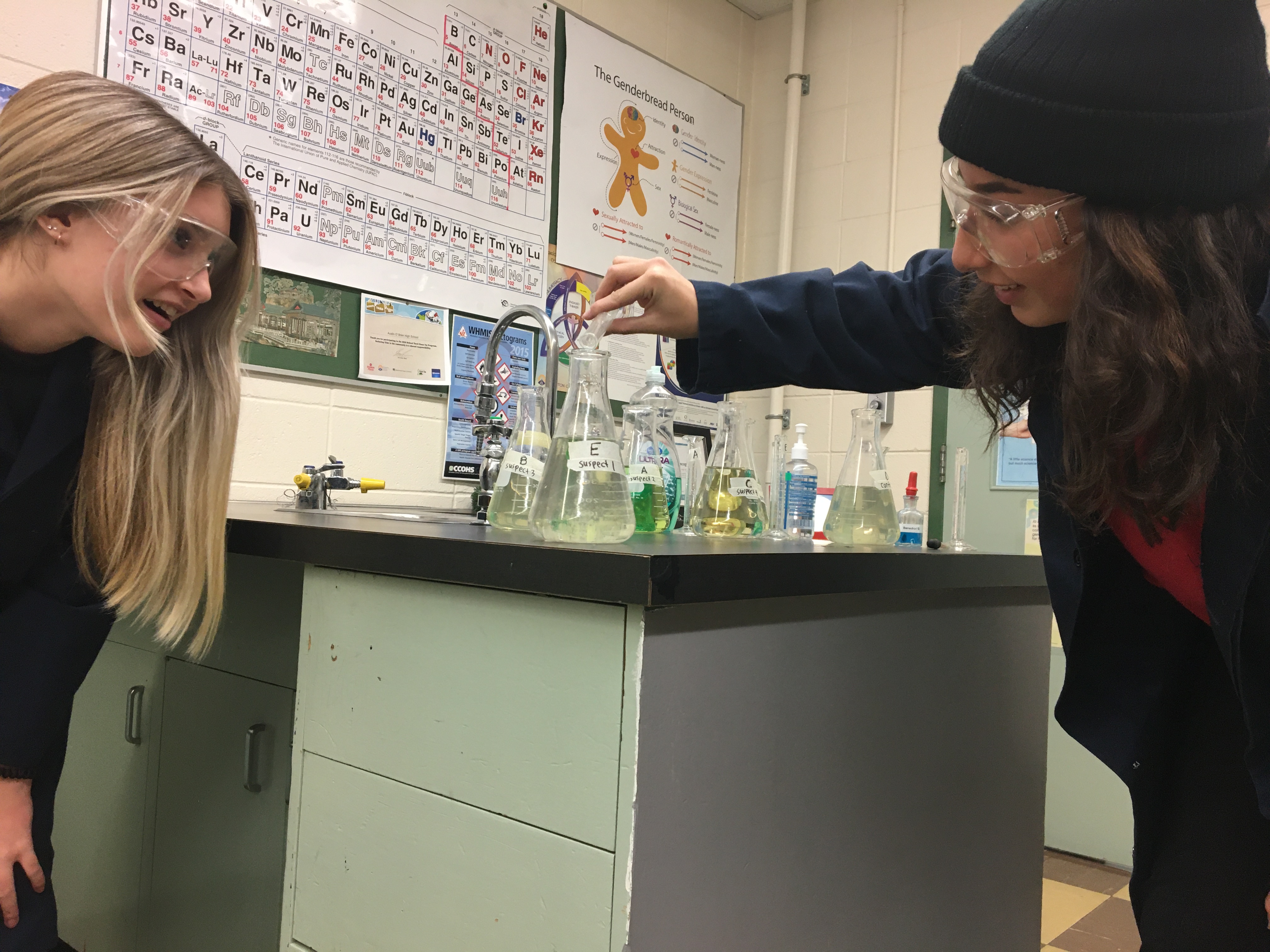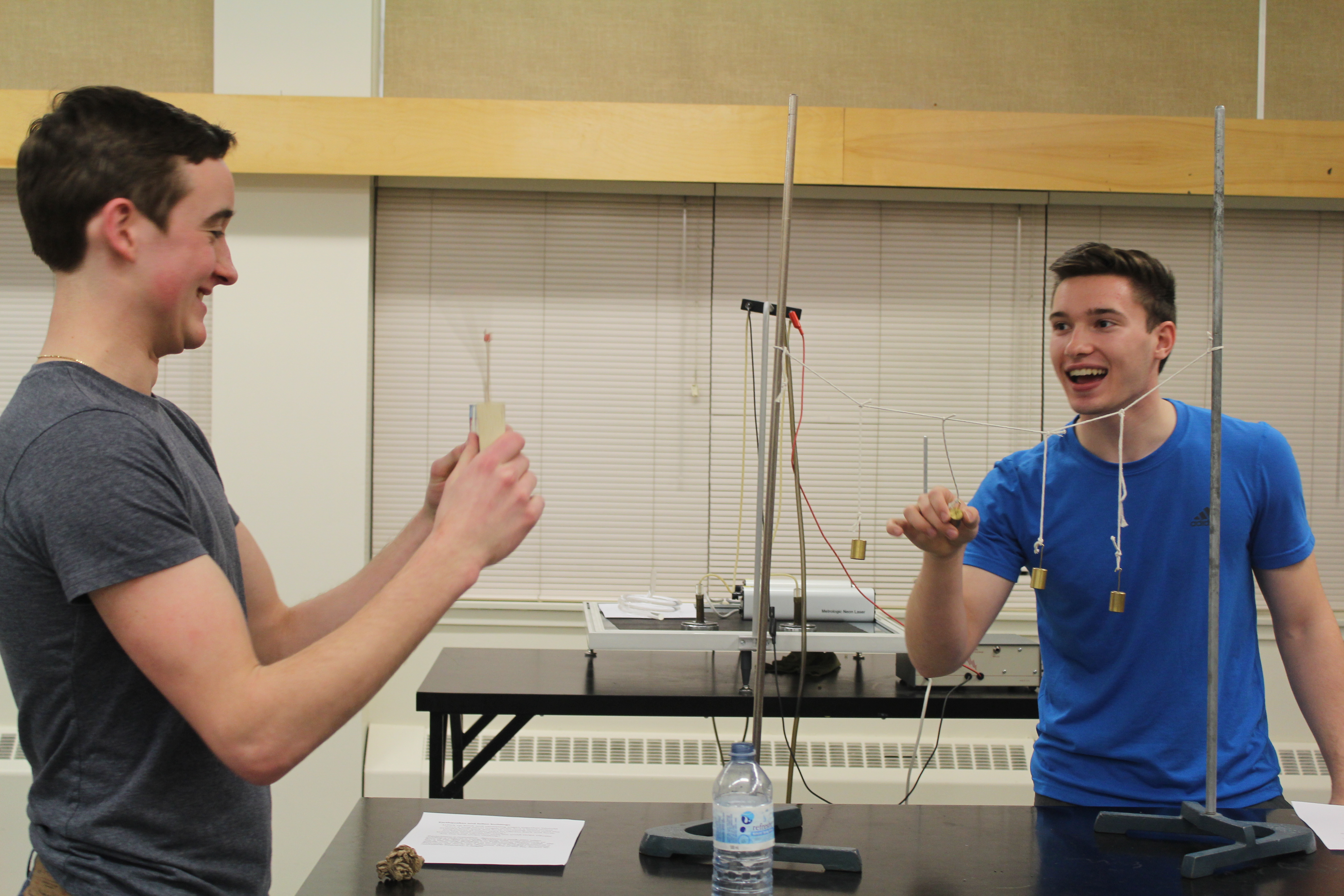Science
Science is a human activity which is directed towards increasing our knowledge about the composition and behavior of matter, both living and non-living. Many of the issues that society must face will be science related. As citizens of one of the most technologically advanced countries in the world, we must be informed so that intelligent decisions may be made.

Science 10
Science 10 is the prerequisite for all 20 level science courses. This is a general science course that includes units in biology, chemistry, physics, and energy flow in global systems. Science 10 is an appropriate fit for students who achieved a mark above 60% in Science 9.
Note: An alternative route of Science 10-4 and 20-4 may be suggested depending on Grade 9 achievement.
Note: It is strongly recommended that students taking a specific science course at the 20 level should have a minimum of 65% in the corresponding section in Science 10. For example, a student who earns 65% in Science 10 but failed the Chemistry section of science 10 is not advised to enroll in Chemistry 20. In addition, students planning to take Biology 30, Chemistry 30, Science 30, or Physics 30, must have at least 60% in the prerequisite 20 level course. Teacher recommendation may also be considered.



Science 14 - 24
This program sequence meets the requirements for an Alberta High School Diploma. Science 14 is an appropriate fit for students who achieved a mark below 60% in Science 9.
Note: An alternative route of Science 10-4 and 20-4 may be suggested depending on Grade 9 achievement.

Science 20 - 30
Science 20 and 30 are general science courses that cover topics in biology, chemistry, physics, and earth science.
Science 20 is a course that is suitable for students who achieved between 50-60% in Science 10 and who would like to go on to take Science 30 in grade 12. Typically, students do not enroll in Science 20 if they are taking any other 20-level science course.
Science 30 is accepted for entrance to all Alberta universities. Any 20-level science course (except Science 24) can be used as a prerequisite for Science 30. Consequently, students do not necessarily need to take Science 20 in order to enroll in Science 30. Many students find that the mark they earn in Science 30 helps them increase their overall average which they use to apply to their post-secondary program. Note: Students with only Math 20-3 do not have the mathematical background to be successful in Science 30 and are required to have successfully complete Math 20-2.

Biology 20 - 30
white
This program sequence begins in Biology 20 with a study of ecology, human physiology, photosynthesis/respiration, and evolution. Biology 30 continues with human physiology, cellular reproduction, genetics, and population biology.

Chemistry 20 - 30
This program sequence begins in Chemistry 20 with a study of bonding, solutions, acids and bases, and chemical analysis. Chemistry 30 examines thermochemistry, electrochemistry, chemical equilibrium, and organic chemistry.
Note: Students who wish to take Chemistry 30 should have earned at least 60% in Chemistry 20 and should have completed Math 20-1.



Physics 20 - 30
This program sequence begins in Physics 20 with a study of kinematics, dynamics, periodic motion, and conservation of energy. Physics 30 students study momentum and impulses, forces and fields, electromagnetic radiation, and atomic physics.








